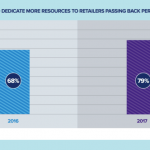YouTube Sued By Zombie Go Boom Over ‘Brand-Safe’ Ad Policies
YouTube Sued By Zombie Go Boom Over ‘Brand-Safe’ Ad Policies
by Wendy Davis @wendyndavis, July 14, 2017
YouTube’s new ad policies, aimed at making the service safe for brands, resulted in a massive drop in revenue for the popular video channel Zombie Go Boom, its owners allege in a new lawsuit.
James Sweet and Chuck Mere allege that they were earning between $10,000 and $15,000 a month in ad revenue until late March of this year — when YouTube rolled out new guides aimed at preventing ads from appearing on potentially offensive videos. After March 27, a date Zombie Go Boom refers to as “Adpocalypse,” its ad revenue fell to between $20 and $40 a day, Sweet and Mere say in a potential class-action filed Thursday in U.S. District Court for the Northern District of California.

“YouTube intentionally caused Adpocalypse to occur, in an effort to appease its advertising partners, at the expense of its content providers,” they allege in a complaint accusing YouTube of violating California’s unfair competition law and breach of contract.
Sweet and Mere allege that their videos, which they say are similar to TV programs like “Mythbusters” and “The Walking Dead,” were “demonetized” as part of Google’s initiative to reassure advertisers that their ads won’t support problematic content — including material flagged as violent or offensive.
They allege that YouTube’s new policies amount to an unfair “secret rating system,” and are seeking a court order requiring the company to reveal the details of its new brand-safety algorithms.
“YouTube has a duty to disclose, with detailed specificity and complete transparency, the terms by which content is selected or deselected for monetization,” they argue in their complaint. “Failing to disclose this essential information to content providers, along with maintaining unilateral control to change the terms and conditions which govern the payment received by content providers for their creative work is anti-competitive, harmful to the creative content market, and also a breach of good faith and fair dealing.”
Sweet and Mere are seeking to represent a class of YouTube content creators whose material was on the site after March 1.
Google said on Friday that it has “always worked hard to provide creators with the opportunity to earn revenue on our platform.”
Last month, YouTube addressed some of the concerns raised by Sweet and Mere in a blog post for content creators. “We know that revenue fluctuations have been unsettling and want to reassure you that we’re working closely with our advertising partners to make sure that YouTube continues to be a great place for creators to earn money,” the company wrote. “We know we have to improve our communications to you, our creators. We also need to meet our commitment to our advertisers by ensuring their ads only appear against the content they think is suitable for their brands.”
Zombie Go Boom could have an uphill fight in court, according to Santa Clara University law professor Eric Goldman. He points out that many Web platforms claim the right to revise their policies — to the detriment of users.
“If you’re building on a shaky foundation, you shouldn’t be surprised if things change,” he says.
Google itself has defeated other lawsuits by companies that alleged their businesses were harmed by a change in policy. Most recently, a judge dismissed a lawsuit against Google by e-ventures Worldwide, which claimed its business suffered after its sites were removed from the search results. In that matter, a federal judge ruled that Google has a free speech right to decide which search results to display.
MediaPost.com: Search Marketing Daily
(39)













